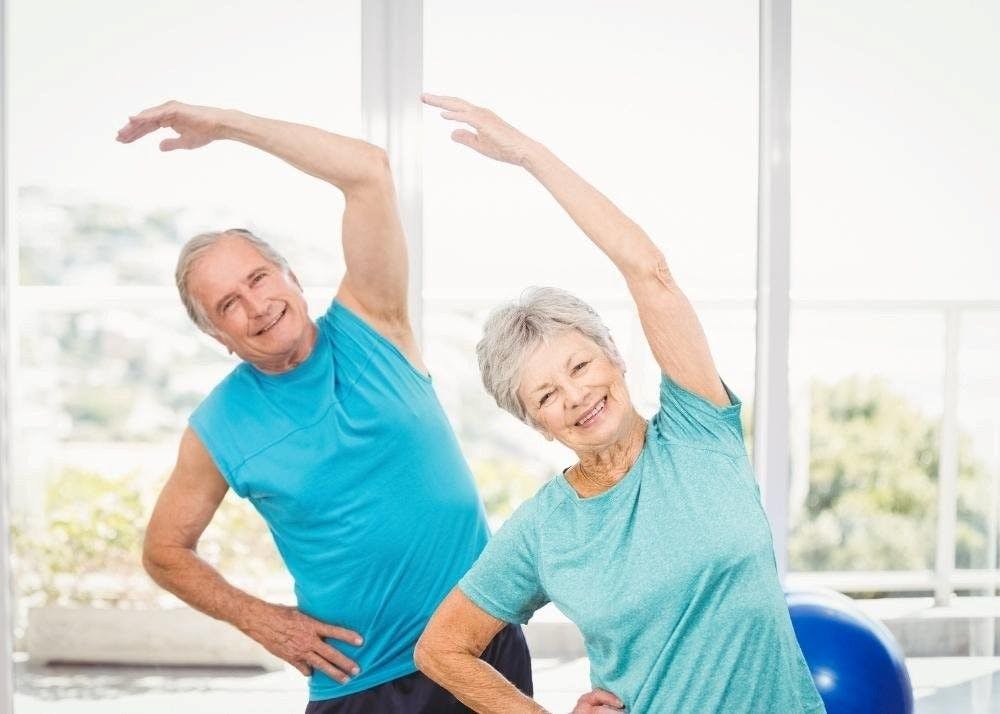Unlocking Flexibility: Exercises for Athletes, People With Chronic Pain, and Older Adults
Unlocking Flexibility: Exercises for Athletes, People With Chronic Pain, and Older Adults
Sam Mwangi
Feb 21 2024
3 min read

What's interesting about blogging on this topic is that it applies to far more people than you'd think. Sal was telling me how she was talking to her mum's friends, but they were scared to try this because of injury. It got me thinking how important it is to address these concerns and make flexibility training accessible to everyone, regardless of age or fitness level.
Flexibility for All
Flexibility exercises are not only beneficial for athletes but also for individuals with chronic pain and older adults; they offer a multitude of advantages that extend beyond simply touching your toes.
For Athletes: Enhancing Performance and Preventing Injuries
Athletes, regardless of their sport or level of expertise, can greatly benefit from incorporating flexibility exercises into their training regimen. Flexibility is a key component of athletic performance, contributing to improved agility, range of motion, and overall movement efficiency.
Increased Range of Motion: Flexibility exercises help athletes achieve a greater range of motion in their joints, allowing for more fluid and efficient movement patterns.
Injury Prevention: Flexibility exercises work to alleviate muscle tightness, reduce imbalances, and improve joint mobility, thereby decreasing the likelihood of strains, sprains, and other musculoskeletal injuries.
Faster Recovery: Flexibility exercises can aid in post-workout recovery by promoting blood flow to the muscles, reducing soreness, and enhancing muscle relaxation.
For People with Chronic Pain: Alleviating Discomfort and Improving Functionality
Gentle and controlled stretching can alleviate discomfort by releasing tension in tight muscles, improving circulation, and promoting relaxation. The benefits may include:
- Pain Relief: Stretching exercises can help alleviate muscle tension and stiffness, resulting in temporary relief from pain and discomfort.
- Improved Mobility: Flexibility exercises target the muscles and joints involved in movement, helping to improve flexibility, range of motion, and overall mobility.
- Stress Reduction: Flexibility exercises such as Tai Chi and Yoga can help alleviate stress and promote relaxation, contributing to improved mental and emotional well-being.
For Older Adults: Promoting Independence and Quality of Life
Maintaining flexibility becomes increasingly important for preserving mobility, preventing falls, and promoting overall independence as we age. Here are some benefits:
- Joint Health: Flexibility exercises help maintain joint mobility, lubricate the joints, and improve overall joint health.
- Fall Prevention: Flexibility exercises that focus on balance, stability, and coordination can help reduce the risk of falls by improving proprioception and enhancing muscle control and strength.
- Enhanced Functional Ability: Flexibility exercises that mimic daily activities can improve functional ability, making everyday tasks easier and faster for older adults.
Conclusion: Flexibility for All
By incorporating flexibility training into their routines, individuals in these diverse groups can unlock the transformative power of movement and experience the joys of a more flexible, mobile, and vibrant life. With proper guidance and personalized modifications, there are fewer age or mobility limitations on who can join in and reap the benefits of flexibility training.
Recently, Sal had the opportunity to do a flexibility exercise session with her 81-year-old friend, who initially felt hesitant due to concerns about injury. However, after the session, her friend felt like a million dollars, experiencing newfound energy and vitality. This highlights the incredible impact that flexibility exercises can have on people of all ages and backgrounds.
Let's break down those barriers and embrace the journey to improved flexibility and overall well-being, together.
Sam Mwangi
Sam Mwangi is a freelance writer based in Nairobi, Kenya. Having a background in Engineering always made him curious about life on the other side of the spectrum. Sam specializes in writing SEO articles, case studies, journals, fiction stories, fitness, well-being, and health articles. This has given him an up-close and personal view into the complexities of human beings, and those experiences helped him branch out from complex numbers to words. In recent years, Sam has translated those skills into a writing career. He is now taking a joint venture with Sally to blog about full-circle health and fitness.

Get in Touch
Have questions or need assistance? Reach out to us, and we'll help you get the answers you need.
Contact Us

